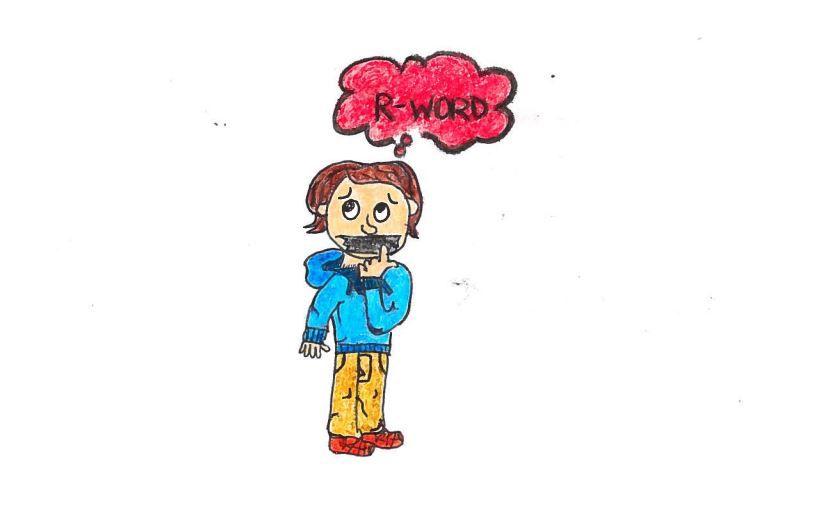In October 2010, former president Barack Obama signed Rosa’s Law requiring the term “mental retardation” be stricken from federal records and replaced with “intellectual disability” or “individual with an intellectual disability.” The law came in response to Rosa Marcellino, who has down syndrome, being labeled “retarded” on official school documents. When Rosa’s family fought back, the state of Maryland, and eventually the federal government, changed their policy on the use of the word.
The law was a momentous stride for those advocating omittance of the word from American diction. Proponents of this movement argued the R-word is both incorrect and offensive to those with intellectual disabilities who should not be degraded by such a derogatory slang term. Despite the term “retarded” or “mental retardation” being widely excluded from medical diagnosis for decades, the word is still prevalent in today’s society and for all the wrong reasons.
According to the Center for Disease Control and Prevention, approximately one in six children in the United States has a developmental or intellectual disability such as cerebral palsy, autism or speech impairment. The R-word has long been used to belittle those with disabilities of all kinds and, as of recent years, has been employed by the general public as an all-encompassing word for any negative person or situation.
While 89 percent of Americans agree that calling someone with autism or Down syndrome the R-word is offensive, 38 percent of people say calling their friends the R-word is inoffensive, according to a poll conducted by Special Olympics International and Shriver Media. Despite most people agreeing the R-word should not be used to identify or mock those with intellectual disabilities, many people fail to understand using the word to insult someone in any situation perpetuates the same negative stereotypes.
The R-word is widely considered a slur because of its ability to single out and label a minority in a derogatory and direct manner, and it should be treated as such. Although the word did not carry insult as a clinical term, it carries vastly different meaning in a society that has assigned the word to be derogatory and degrading. Using the R-word to insult someone only equates and further encourages the idea that those with intellectual disabilities are ignorant or stupid like the person you are trying to insult. This, though untrue, only makes those with intellectual disabilities feel more alienated or “other” in a world that has historically been less than accepting.
“Because the word has become a casual description of anything negative or flawed, ‘retarded’ is no longer considered an appropriate way to describe people with intellectual disabilities,” said Sara Mitton, board member at Treasure Valley Down Syndrome Association. “And any use of the word, even when used as slang and not intended to be offensive is hurtful because it will always be associated with people who have disabilities.”
Use of the R-word in any context, whether intentionally or unintentionally hurtful, wrongfully equates intellectual disability with stupidity. Words are a critical factor in molding and shaping public perceptions. Words are our greatest tool and should be used to spread acceptance and understanding, not hate.
Hannah Kleinpeter is a 20-year-old mass communication junior from Baton Rouge, Louisiana.
Opinion: Use of the r-word perpetuates negative stereotypes
October 24, 2017





